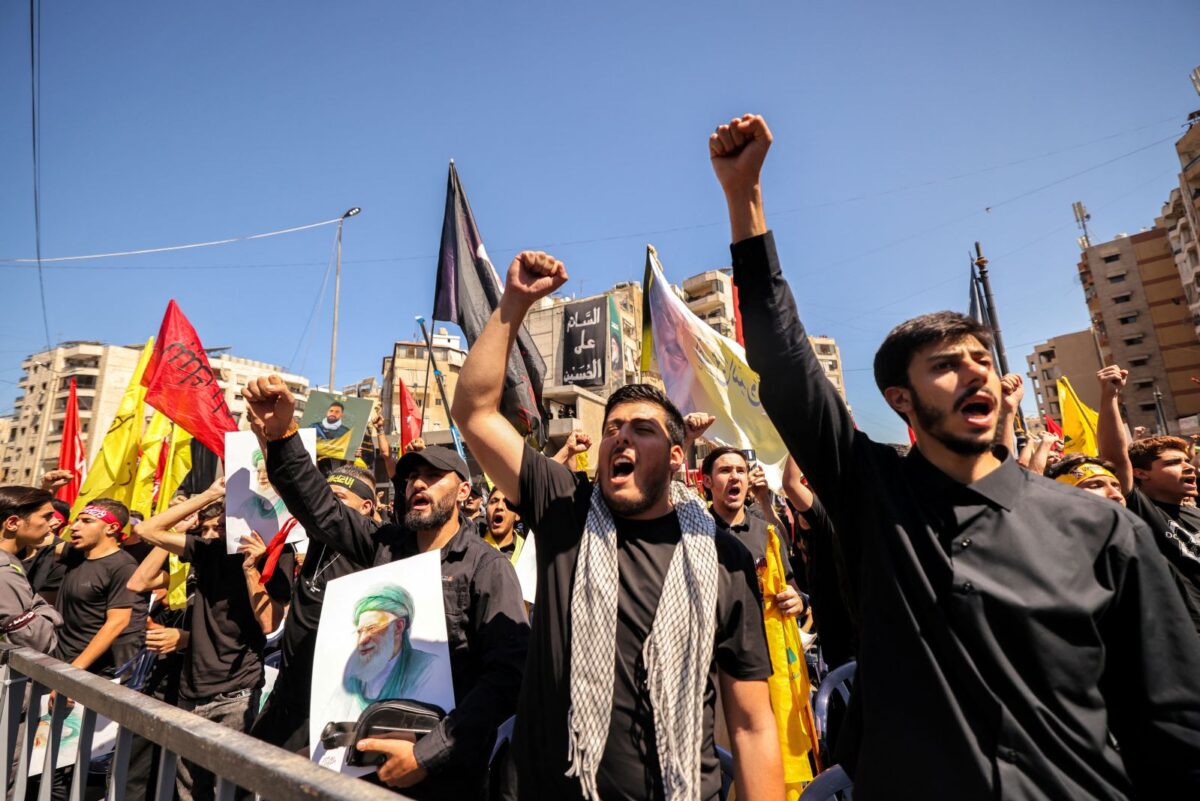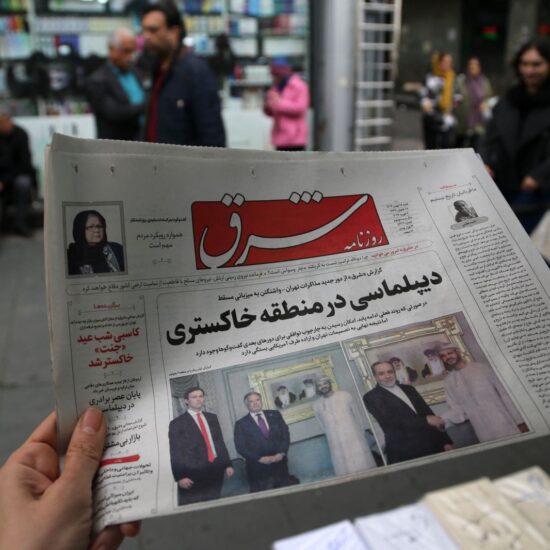
The debate over disarming Iranian-backed forces in Lebanon persists, yet the Lebanese state continues to shirk its responsibility to establish clear mechanisms—or even a timeline—for asserting its sovereignty. This sovereignty, often cited diplomatically, is in reality synonymous with disarming Hezbollah, as outlined in the revised United Nations Security Council Resolution 1701.
The continued framing of Lebanon’s arms crisis as an abstract or intractable problem distracts from the core issue: the deliberate effort by Lebanon’s dominant Shiite political forces—namely Hezbollah and its partner, the Amal Movement—to maintain their weapons not for national defense, but to consolidate control over state resources without assuming full accountability for the collapse of the state and its institutions. Hezbollah’s arsenal is no longer a “resistance weapon” or perhaps it never was—it has morphed into an instrument of governance outside the confines of the state, one that enforces political dominance without transparency or checks.
A more effective and honest approach to dealing with Hezbollah and its allies is not to plead for disarmament but to confront them politically—openly demanding a clear set of political “asks” in exchange for relinquishing their weapons. This would cut through the deadly stalling tactics that have long defined Hezbollah’s relationship with the state. It is no longer logical or sustainable to treat Hezbollah as a national exception beyond reproach, especially when the fate of the republic hangs on its unilateral decisions.
When Hezbollah’s supporters—and at times, Amal’s—speak of the need for “guarantees” before disarmament, they are not referring to protections against Israeli aggression. What they seek, instead, are guarantees that they will not lose their political and financial privileges once they surrender their arms. In other words, they aim to negotiate a deal that preserves their entitlements while giving up the tools that enabled them—at the expense of the state. This outlook reduces Lebanon not to a unified national entity but to a spoils system distributed among sectarian power centers.
This dynamic was clearly understood by Tom Barrack, U.S. President Donald Trump’s envoy, who attempted to reframe Hezbollah—not as a terrorist group, as it is officially designated by the U.S., but as a political actor worthy of negotiation. During a recent visit, Barrack reportedly met with Hezbollah officials, signaling that cooperation might lead to the group’s removal from the sanctions list—similar to what occurred with Syria’s former adversaries in the jihadist camp. The danger here lies in reducing Hezbollah’s weapons to a negotiable commodity in international diplomacy, disconnected from Lebanon’s national project of state-building.
Ironically, Lebanon’s experience with armed groups during the civil war was in some ways more transparent. At the time, the Lebanese left developed a clear political platform that included constitutional reforms as the price for giving up arms and leveraging Palestinian military power. The left’s weapons were, at least nominally, part of a broader strategy for structural change.
In the case of the Druze, their leaders—political, feudal, and religious—presented a unified front during the Mountain War, offering a document known as the “Druze Memorandum,” which called for redressing historical grievances and demanded political reform. Their arms were thus framed as a means to an end, not the end itself. This formed the basis of a negotiation process that eventually fed into the Taif Accord, which ended the civil war.
Hezbollah’s arms, however—politically overseen by Speaker of Parliament Nabih Berri—are not backed by any clear political “Shiite memorandum.” Instead, Hezbollah deploys a strategy of ambiguity: invoking Lebanon’s constitution when under pressure, and bending its institutions to serve its partisan objectives during times of calm. There is no reform plan. No serious program of governance. Only a suspended arsenal looming above the republic, activated at will and deactivated when convenient.
Allowing Hezbollah and its orbit to retain their weapons is dangerous. But even more perilous is continuing to hold the Lebanese political system hostage to sectarian adventurism. The last two decades have proven that the experiment of Shiite political hegemony has failed to deliver anything beyond paralysis and bankruptcy. It is a de facto authority that has no national project—only the preservation of deadlock, waiting for a foreign-brokered deal to reassign regional influence.
What makes Hezbollah’s arms particularly destabilizing—unlike the weapons held by other sects during the civil war—is their explicit tie to an external agenda. They are not rooted in Lebanese self-preservation but in Iran’s projection of power. The consequences of this foreign tethering have been most brutally felt by Lebanon’s Shiites themselves, especially those living in the devastated south.
The formula is now stark: There can be no state as long as there are arms outside it. And there can be no rescue of the republic as long as a parallel state thrives within it. Every delay in dismantling this duality widens the gap between a failing Lebanon and the Lebanon that could still rise from its ruins.
This article original appeared in Nidaa al-Watan
Makram Rabah is the managing editor at Now Lebanon and an Assistant Professor at the American University of Beirut, Department of History. His book Conflict on Mount Lebanon: The Druze, the Maronites and Collective Memory (Edinburgh University Press) covers collective identities and the Lebanese Civil War. He tweets at @makramrabah







